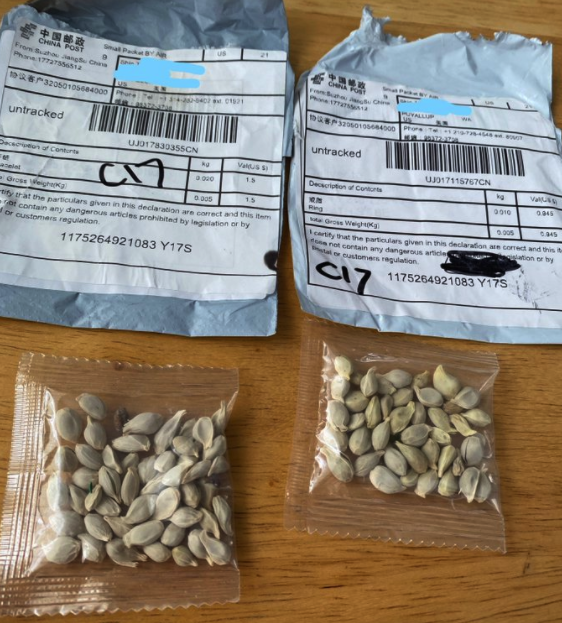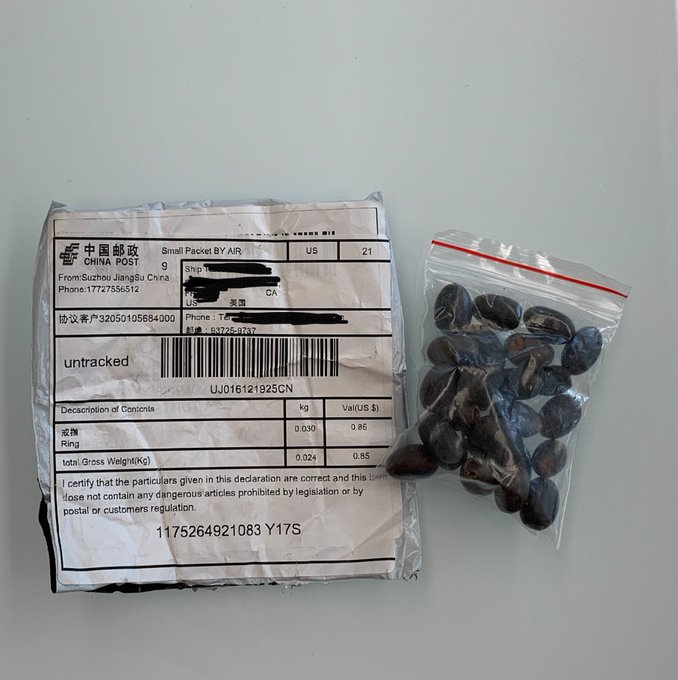Despite the government warning and advisory to dispose off the suspicious seed shipments from China, several Americans, who had no idea about such alert, have gone ahead and planted them to find surprising results.
An Arkansas man who planted those seeds just to see what would happen noticed that the plant has produced large white fruit from orange flowers, almost like a squash. The Booneville resident Doyle Crenshawn told local CBS-TV affiliate KSFM "Every two weeks I'd come by and put Miracle-Gro on it, and they just started growing like crazy.''

In July, the U.S. Department of Agriculture warned people not to plant those seeds and asked the receivers of such shipments to keep the seeds in their original packing after over a dozen states reported about the mysterious packets. People who received such packets were advised contacting their local agricultural office.
In fact, recently a scientist, Osama El-Lissy, a member of the USDA's Animal and Plant Health Inspection Service has revealed that the officials have finally identified more than a dozen plant species in the seed packets.
Mystery Seeds
El-Lissy said that the USDA officials have found 14 different species of seeds, which include cabbage, mustard, morning glory, and some herbs, like mint, sage, lavender, and rosemary. They have also found seeds of hibiscus and rose.
As per the authority, it is possible that the seed packets may be a part of an online money-making scam that may have originated in China. In a statement they said, USDA is currently collecting the seed packets from recipients and to conduct tests to find out whether "they contain anything that could be of concern to U.S. agriculture or the environment."

Reports and several social media posts have revealed that these seeds were sent to addresses in all 50 states in the country, while some shipments were made in Canada. In many of those packets, the shipping information was found printed in Chinese characters. Some of them were found with misinformation, claiming to contain items like bracelets or rings.
As per the address labels, most of the packets appear to have sent from the Chinese cities of Suzhou. But as per a spokesperson of Chinese foreign ministry, the address labels on the package were forged.
Even though as of now the U.S. authorities haven't found any dangerous or harmful material in those packets, the USDA is still asking people not to plant those seeds and keep them away from the reach of dogs and children.









